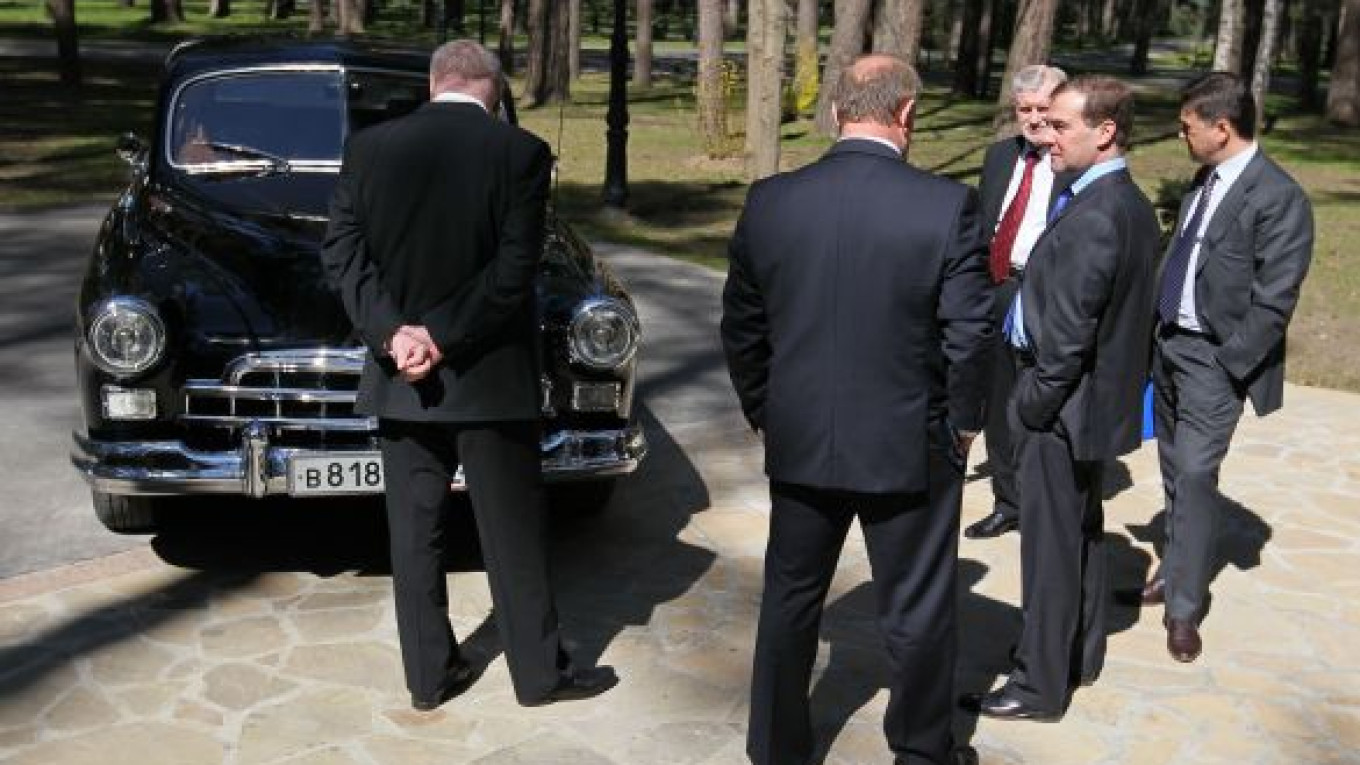Five days before leaving office, President Dmitry Medvedev finalized two key political reforms Wednesday that he had promised after huge anti-government protests swept the country last December.
Medvedev a meeting with leaders of the State Duma's four political factions that he had signed the laws introducing gubernatorial elections and lowering hurdles for running in parliamentary and presidential elections.
Medvedev has said the amendments, which sailed through both houses of parliament last week, should "raise the level of political culture," but critics say they were watered down by United Russia.
The bill on gubernatorial elections stipulates that candidates need the support of at least 5 percent of a region's municipal deputies and requires nonparty candidates to additionally collect signatures of at least 0.5 percent of the local population.
It also on political parties to consult with the president before nominating candidates and requires a court ruling to hold a referendum on removing a governor. Gubernatorial terms are limited to two consecutive five-year terms.
The second bill parties no longer have to collect signatures to take part in parliamentary elections. For presidential elections, it lowers the number of signatures required from 2 million to 100,000 — or 300,000 for independent candidates.
A third bill, which reduces the minimum membership from 40,000 to 500 for political parties, was signed by Medvedev last month.
The first gubernatorial elections will be held on Oct. 14 in those regions whose governor's term expires between June 1 and Dec. 31 of this year, the Kremlin said in a statement.
Medvedev has fired nine unpopular governors in recent weeks, leading to allegations that the Kremlin is unfairly maximizing the chances of its candidates.
On Wednesday, the president the resignation of Stavropol Governor Valery Gayevsky, whose region voted less than 50 percent for United Russia in the December elections.
Medvedev appointed State Duma Deputy Valery Zerenkov of United Russia in his place — and informed the lawmaker in a telephone call.
"The conversation caught me off guard," Zerenkov told Interfax.
"Medvedev told me that he had signed the decree and said, 'Don't be half-hearted with your strength and time. Pay more attention to the people and — this is important — they will always support you.'"
Medvedev, who has replaced more than half of the country's 83 regional bosses during his four years in office, said last week that most governors' voluntary resignations come after pressure from him because of suspected corrupt activities.
Analysts said opposition candidates are unlikely to win gubernatorial posts this year.
Pavel Salin, from the Center for Current Politics, said approval by municipal lawmakers presents a formidable hurdle to outsiders. "The ruling elite could not freeze the process, but managed to slow it down," he said by telephone.
A Message from The Moscow Times:
Dear readers,
We are facing unprecedented challenges. Russia's Prosecutor General's Office has designated The Moscow Times as an "undesirable" organization, criminalizing our work and putting our staff at risk of prosecution. This follows our earlier unjust labeling as a "foreign agent."
These actions are direct attempts to silence independent journalism in Russia. The authorities claim our work "discredits the decisions of the Russian leadership." We see things differently: we strive to provide accurate, unbiased reporting on Russia.
We, the journalists of The Moscow Times, refuse to be silenced. But to continue our work, we need your help.
Your support, no matter how small, makes a world of difference. If you can, please support us monthly starting from just $2. It's quick to set up, and every contribution makes a significant impact.
By supporting The Moscow Times, you're defending open, independent journalism in the face of repression. Thank you for standing with us.
Remind me later.


